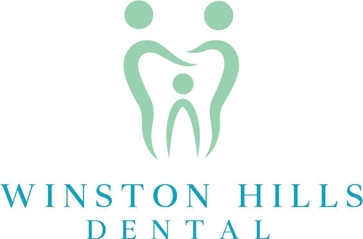Dental crowns are one of the most common restorative treatments used in dentistry to improve the appearance and health of teeth.
The longevity of a dental crown can significantly vary depending on its type, how it is taken care of, and other factors that may affect it.
A thorough understanding of these elements will help ensure that dental crowns last for as long as possible and provide maximum benefit to those who have them placed.
This article provides an overview of the duration that dental crowns can be expected to last.
This article aims to inform readers about different types of dental crowns, their projected lifespans, what affects their longevity, and ways patients can increase the lifespan of their dental crowns.
Furthermore, readers will understand why investing in quality materials when getting a dental crown could help extend its life expectancy and positively affect oral health outcomes.
Types Of Dental Crowns
People first notice the smile and dental crowns play a massive role in keeping it healthy.
A dental crown is an artificial cap that fits over a tooth to protect or improve its appearance. They can be made from materials such as metal, porcelain, or combinations of both for strength and aesthetics.
Crowns are often used when natural teeth are damaged or decayed beyond repair. When correctly fitted, these prosthetic devices provide durability, function just like natural teeth, and give many years of service with proper care.
Though different types of crowns may have varying lifespans due to their material composition and other factors, they typically last between 5-15 years, depending on how well they’re cared for by the patient.
For instance, metal crowns tend to be stronger than all-porcelain ones, but they require more maintenance since food particles may accumulate around them quickly.
Various elements affect the longevity of dental crowns, including clenching/grinding habits; acidic foods/beverages that cause wear on enamel; poor oral hygiene; lack of regular check-ups; incorrect fitting; excessive force applied during everyday activities; trauma caused by sports etc.; and presence of underlying diseases such as gum recession.
To ensure a long life span for any crown, one needs to maintain good overall health along with proper oral hygiene practices such as brushing twice daily using low abrasive fluoridated paste and flossing once a day at least.
Regular visits to the dentist for check-ups should also be scheduled every six months so that any potential problems can be discussed before causing damage to the existing structure(s).
Not only will this help identify signs of decay in time, but it also allows practitioners to observe areas where fillings might not hold up under pressure generated by chewing forces, thus delaying replacement costs later.
Factors That Affect Longevity
Dental crowns provide a long-lasting form of protection and repair for teeth. The crown’s lifespan is determined by several factors, including the type of material used, how well it was placed, and proper care and maintenance.
When considering the longevity of dental crowns, it is essential to understand that different types are available. Permanent crowns made from gold or other metals are typically more durable than those made with porcelain fused over metal or resin. Gold crowns can last 10-15 years if properly maintained, while resin crowns may only last five years or less due to their weaker structure.
The health habits of an individual also make a difference in the lifespan of a dental crown. Poor oral hygiene increases tooth decay, weakening natural teeth and restorations like crowns, thus reducing their life expectancy. Regular cleanings and check-ups at least twice a year help maintain oral health and extend the life of a dental restoration such as a crown.
It is essential to be aware that any dental restoration requires special attention for it to function optimally throughout its expected lifespan:
- Brush and floss regularly
- Avoid hard foods or chewing on ice cubes
- Schedule regular visits to your dentist for professional cleanings
To ensure optimal results from your dental restoration, taking care of your oral hygiene and routine dental trips are essential components in maintaining good oral health overall.
Proper Care And Maintenance
A dental crown is like a shining beacon of health, protecting and restoring the strength of your teeth. This robust and durable material can last many years with proper care and maintenance. With effective oral hygiene habits and regular visits to the dentist, you can ensure that your crown remains healthy.
The materials used to make dental crowns are highly resilient but require extra attention to remain solid and long-lasting. The most crucial factor when caring for them is practising good dental hygiene habits daily; brushing twice daily with fluoride toothpaste, flossing at least once daily, avoiding sugary foods or drinks that could cause decay, and not smoking. You should also be aware of any sharp objects or heavy pressure on the crowned area that may damage the crown.
Regular cleanings by professional dentists are also essential for keeping your crown healthy. During these appointments, dentists will check for signs of wear or decay around the crowned area to address any problems before they become an issue. They will also take x-rays of the site to rule out underlying problems, such as gum disease or infection, which could harm the integrity of the crown over time.
In addition to receiving regular dental exams from professionals and following proper home care routines every day, you can take other steps to extend the life of your crown. Avoiding hard substances like ice cubes or popcorn kernels that could crack the surface of your restoration greatly helps maintain its longevity.
Taking proactive measures now will help keep your restored smile looking great for many years. Doing so gives you more peace of mind knowing that your precious pearly whites are safe and sound beneath their protective covering of enamel-like strength.
Avoiding Damage To Crowns
Maintaining the longevity of dental crowns is often determined by careful care and maintenance. To ensure a successful life span, dentists recommend that patients practice healthy oral hygiene habits such as brushing twice daily with fluoride toothpaste, flossing at least once daily, using mouthwash to reduce bacteria buildup, and scheduling regular trips to the dentist for check-ups and cleanings.
Dental crowns protect an original tooth from further damage due to cavities or other health conditions. Crowns come in several different types and vary depending on the state of the patient’s teeth; molars typically require more durable materials than front teeth. Success rates can also be affected by how well one follows their dentist’s instructions when caring for their dental work.
For a crown to remain intact over time, proper care must be taken between visits to the dentist. This includes avoiding certain foods or beverages that may cause staining or discolouration of the crown material, not biting down hard onto objects like fingernails or pencils, and abstaining from chewing ice that could loosen or break the bond of dental cement that holds the crown in place.
Eating crunchy snacks should also be avoided as these items have been known to fracture crown edges if bitten directly. By taking all necessary precautions before receiving a dental crown procedure and following aftercare instructions provided by your dentist, you can maximise your chances for long-lasting success with your new smile restoration.
Maintaining good oral health through consistent preventive practices is essential for preserving dental work and having periodic check-ups with your provider, who will monitor wear and tear on all existing restorations placed within your mouth. With proper care and attention given to natural teeth and those treated with a crown, you can help maintain a beautiful smile year after year with minimal effort.
Replacing worn or damaged crowns is another way to keep up appearances while seamlessly restoring function into your bite pattern.
Replacing Worn Or Damaged Crowns
A dental crown can protect and preserve oral health but does not last forever. Crowns are typically made of composite resin, porcelain-fused-to-metal, ceramic or zirconia. Depending on the material used, how well you care for it, and its location in the mouth, a crown may need to be replaced after 5 to 15 years.
Damage to teeth is one of the main reasons for replacing a crown. Broken or decayed teeth can cause cracks in the shape of the crown resulting in an improper fit and allowing bacteria entry into the tooth area. A temporary crown should replace any broken or chipped ones until a new permanent one can be constructed at a later appointment.
Ceramic and zirconia crowns will usually last longer than metal ones due to their durability from wear and tear over time. However, both types of materials may break if too much pressure is applied during chewing or grinding, which could lead to failure with either type of restoration.
Regular maintenance appointments with your dentist are essential for monitoring any potential damage so that necessary actions can be taken before further complications arise.
It’s important to remember that preventive measures like avoiding hard foods and grinding teeth can help extend the lifespan of your dental crowns. Maintaining good oral hygiene practices is essential for keeping them looking good as long as possible.
If you have had a dental crown placed recently, check back regularly with your dentist to ensure its ongoing stability and longevity within your mouth.
Conclusion
Dental crowns are an effective way to support and protect teeth. How long they last depends on the type of dental crown, how well it is cared for, and whether or not damage occurs.
With proper care and maintenance, many types of dental crowns can last a lifetime. Regular dental check-ups should be maintained to ensure maximum longevity to identify any potential issues before they become serious problems.
Taking good care of one’s dental crowns is like having a personal guardian angel watching over them; if adequately taken care of, these restorations can outlast even the most powerful storm!
If you have any question, reach out to our dentists in Winston Hills for guidance.

